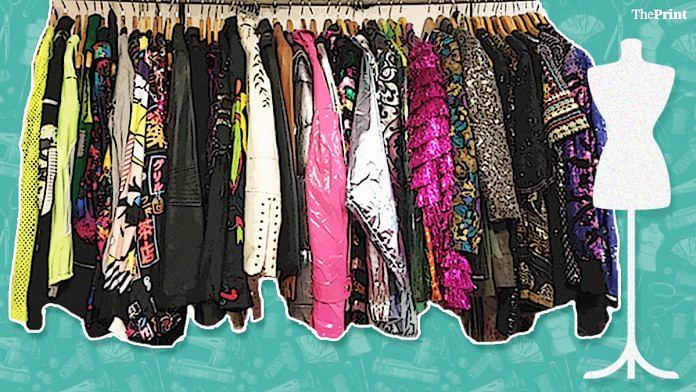- The fashion industry emits more CO2 than aviation and shipping combined.
- But attempts to create a fashion circular economy are stalling because of product identification issues.
- Now a New York start-up has developed a digital passport for clothing.
- It can track the entire lifecycle of a garment, helping to reduce waste.
- Eon is a member of The Circulars Accelerators Cohort 2021 on Uplink.
Fashion has a sustainability problem. The industry is responsible for one-tenth of global carbon emissions and its business model relies on us discarding old clothes and buying new ones. Now a digital innovation aims to change all that.
One of the greatest hindrances to creating a circular fashion economy has been product identification. That pre-owned item looks like a designer brand, but is it? When was it made and what’s it made of?
New York start-up Eon says it can answer all those questions. Major fashion brands are currently uploading data about their products to Eon’s Connected Products platform, an Internet of Things (IoT) solution that tracks fashion items throughout their lifecycle.
The platform gives each new fashion item a digital birth certificate which includes information about where and when it was made and what it’s made from. That’s linked to a ‘digital twin’, a virtual replica of the real product, and a digital passport that tracks the product through its life.
For example, a fashion item might be worn at an event by a celebrity, then resold or rented out by a designer clothing hire company, before being sold on again. All this data will appear in its digital passport.
Also read: Wear Che Guevara, Johnny Walker and Gandhi on your T-shirts, but it says nothing about you
Instant recognition
Eon claims to be the first digitization platform to connect products across their whole lifecycle – “from new to renew”.
Using the platform, an upcycler can immediately identify a product; it also suggests pricing and gives advice on how to market the product. The digital record includes fashion tips, such as how a purchaser might pair it with other items.
“At Eon, we think there’s a difference between a digitized product and a connected product,” Eon CEO, Natasha Franck, told the fashion website WWD. “This work has moved beyond initiative to an ecosystem and data exchange within the circular economy.”
As well as reselling products, the digital ID makes it easier to repair them with the correct materials, or to recycle them when they reach the end of their lives. This approach should result in less landfill.
Also read: Cutting costs to trimming their losses: India’s garment industry is hanging by a thread
Reducing waste
The need for a circular economy in fashion is pressing. The World Bank says 87% of the fabric in fashion garments ends up being incinerated or sent to landfill. Without more recycling, global demand for apparel will surge from 62 million tonnes today to 102 million tonnes by 2030.
The fashion industry uses 93 billion cubic metres of water every year – 20% of all wastewater worldwide comes from dyeing or treating fabrics – and its annual carbon emissions dwarf the combined output of global aviation and shipping, according to World Bank data.
Leading the way
Eon has been selected as one of the Circulars Accelerator Cohort on UpLink, the World Economic Forum’s innovation crowdsourcing platform as a tool with the potential to speed up the move to a more circular economy in fashion.
Just 17 start-ups have been invited to join the Circulars Accelerator Cohort. Led by Accenture, the programme will connect circular economy entrepreneurs with business leaders to enable them to scale up their ideas.
This article was first published in the World Economic Forum



